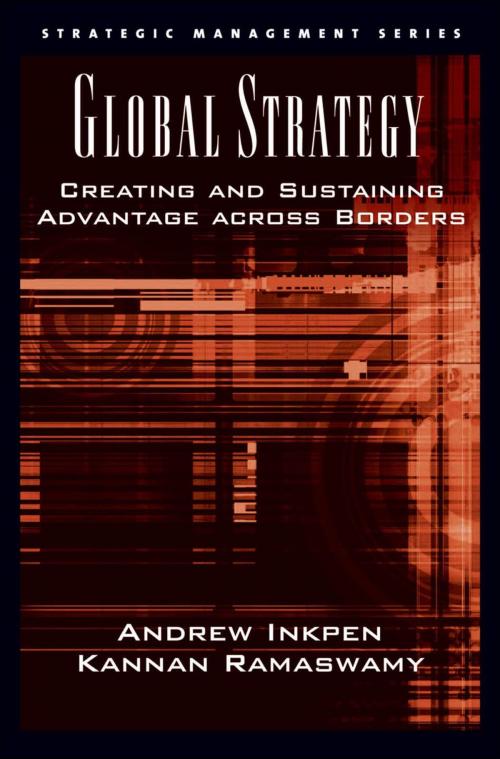Global Strategy
Creating and Sustaining Advantage across Borders
Business & Finance, Economics, International, Development & Growth, Human Resources & Personnel Management, Organizational Behavior| Author: | Andrew Inkpen, Kannan Ramaswamy | ISBN: | 9780199883264 |
| Publisher: | Oxford University Press | Publication: | November 24, 2005 |
| Imprint: | Oxford University Press | Language: | English |
| Author: | Andrew Inkpen, Kannan Ramaswamy |
| ISBN: | 9780199883264 |
| Publisher: | Oxford University Press |
| Publication: | November 24, 2005 |
| Imprint: | Oxford University Press |
| Language: | English |
There are few industries, if any untouched by global competitive forces. Firms and countries long accustomed to dominance in their respective international markets must now reckon with aggressive and innovative competitors from all corners of the world. As the cross-border flow of people, knowledge, ideas, products, services and management practices accelerates, the notion of home-based advantage is becoming weaker. Unlike their domestic counterparts, firms competing across borders must deal with differences in political, legal, financial, cultural, governance and macroeconomic contexts. These contextual differences shape competition in international strategy and make the study of international strategy more than just a simple extension of classic strategic analysis. Global Strategy deals with the question of how firms can compete in a global environment. Andrew Inkpen and Kannan Ramaswamy examine the issues considered central to the study of strategic management in a global context, such as the nature of global advantage, strategic alliances, competing in emerging markets, international corporate governance, global knowledge management and ethical issues in international business. Much as been written about the relevance of global, regional and domestic strategies to counter competition from overseas and as a means to enter foreign markets. However, lobal Strategy takes a broader view, organizing itself around a set of strategic management issues that arise specifically because a firm is international. While there is obviously some overlap between domestic strategic management and global strategic management, it is Inkpen and Ramaswamy's contention that the differences between domestic and global strategy warrant specific attention. By integrating academic research with practical examples and case studies, they inform students and managers of global business about a diverse set of important strategic issues.
There are few industries, if any untouched by global competitive forces. Firms and countries long accustomed to dominance in their respective international markets must now reckon with aggressive and innovative competitors from all corners of the world. As the cross-border flow of people, knowledge, ideas, products, services and management practices accelerates, the notion of home-based advantage is becoming weaker. Unlike their domestic counterparts, firms competing across borders must deal with differences in political, legal, financial, cultural, governance and macroeconomic contexts. These contextual differences shape competition in international strategy and make the study of international strategy more than just a simple extension of classic strategic analysis. Global Strategy deals with the question of how firms can compete in a global environment. Andrew Inkpen and Kannan Ramaswamy examine the issues considered central to the study of strategic management in a global context, such as the nature of global advantage, strategic alliances, competing in emerging markets, international corporate governance, global knowledge management and ethical issues in international business. Much as been written about the relevance of global, regional and domestic strategies to counter competition from overseas and as a means to enter foreign markets. However, lobal Strategy takes a broader view, organizing itself around a set of strategic management issues that arise specifically because a firm is international. While there is obviously some overlap between domestic strategic management and global strategic management, it is Inkpen and Ramaswamy's contention that the differences between domestic and global strategy warrant specific attention. By integrating academic research with practical examples and case studies, they inform students and managers of global business about a diverse set of important strategic issues.















